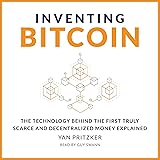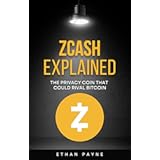The cryptocurrency world is often seen as a frontier, a digital wild west promising unprecedented opportunities and challenges. At the heart of this revolution is a relentless pursuit of what many call “true economic freedom.” Recently, at Reimagine 2020, we had the privilege of hearing from Roger Ver, the founder of Bitcoin.com and an undisputed crypto legend, whose insights, as you’ll see in the video above, cut straight to the core of this debate.
Ver’s journey began nearly a decade ago, a time when the concept of digital currency was still nascent. He describes dropping everything in Silicon Valley to immerse himself in Bitcoin, becoming the first significant capital provider for what would become the initial wave of Bitcoin businesses. His early investments, including now-household names like BitPay, Kraken, and Blockchain.com, underscore his unparalleled foresight. He even played a foundational role in Ripple, demonstrating a broad engagement with emergent blockchain technologies. This deep historical perspective shapes his fervent advocacy for **economic freedom** through decentralized digital cash.
Roger Ver’s Foundational Role: Catalyzing the Crypto Ecosystem
Roger Ver’s early embrace of Bitcoin was more than just an investment; it was a philosophical commitment. His willingness to fund the pioneering ventures of the early 2010s was critical, essentially bootstrapping the entire first generation of companies in the nascent digital currency space. These weren’t just speculative bets; they were strategic moves to build the infrastructure necessary for a decentralized financial future.
This early involvement granted him a unique vantage point to witness Bitcoin’s evolution and, critically, its deviation from its original vision. His critique often stems from observing this divergence, especially concerning Bitcoin Core’s shift away from its utility as a fast, cheap medium of exchange. Such a historical understanding informs his current advocacy, emphasizing that the true promise of cryptocurrency lies in its practical application for everyday transactions, not just as a speculative asset.
Bitcoin Cash: The Path to Peer-to-Peer Electronic Cash
Ver has consistently championed Bitcoin Cash (BCH) as the embodiment of Satoshi Nakamoto’s original vision: “A Peer-to-Peer Electronic Cash System.” His advocacy is rooted in its capability to facilitate super-fast, super-cheap, and super-reliable payments for everyone, regardless of their background or location. He stresses that BCH works today, providing tangible **economic freedom** without waiting for future technological developments.
This commitment was notably tested during a contentious hard fork over an 8% mining tax proposed by Bitcoin ABC. Ver vehemently opposed this, not just for the tax itself, but for the centralized decision-making process it implied. He argued that allowing a small group to decide how funds are spent introduces central planning—a socialist tendency that cryptocurrencies were designed to circumvent. The community overwhelmingly sided with Ver, a testament to the decentralized ethos underlying Bitcoin Cash.
The Hard Fork & The Centralization Dilemma
The debate surrounding the 8% mining tax on Bitcoin Cash illuminates a fundamental tension within decentralized networks: who governs, and how are collective resources managed? Ver’s primary objection wasn’t simply the diversion of block rewards for development; it was the lack of a clear, decentralized mechanism for decision-making regarding these funds. He feared it would lead to political lobbying and resource allocation based on influence rather than merit.
The idea of DAOs (Decentralized Autonomous Organizations) was raised as a potential solution. However, Ver remained skeptical, pointing out that many DAOs, despite their decentralized branding, still involve significant politicking and human argument, making them not much different from traditional governance structures. The core issue, he highlighted, is preserving the social contract of Bitcoin as a permissionless system, free from arbitrary levies or central control. The successful rejection of the mining tax, through a vote by miners and node runners, ultimately reinforced the community’s commitment to decentralized governance, even if the “best way” forward remains an ongoing quest.
Network Effects and Community Cohesion
The topic of cryptocurrency “splintering” sparks a crucial discussion on network effects. Ver acknowledges that the fragmentation of Bitcoin communities (e.g., BCH vs. BSV) can dilute talent pools and hinder overall adoption. A strong network effect, where a currency’s utility grows exponentially with more users, is vital for widespread success. He points to Ethereum as a potential winner in this regard, praising its cohesive ecosystem and impressive developer brainpower.
While supporting the freedom to fork when fundamental disagreements arise, Ver emphasizes the benefits of a united community. The infighting and divisions that have plagued certain crypto factions detract from their ability to build and grow. Ultimately, a currency’s utility is enhanced when its community works together to foster innovation and adoption, reinforcing its position as a reliable medium for **economic freedom**.
Addressing Volatility: Stablecoins and On-Chain Hedging
One common critique of cryptocurrencies as a medium of exchange is their inherent price volatility. Merchants, for instance, prefer stability, wanting assurance that their received payments retain value. Ver recognizes this challenge and points to stablecoins as a crucial part of the solution, noting Tether’s dominance in trading volume.
Beyond traditional stablecoins, he highlights innovative projects like AnyHedge on Bitcoin Cash, which allow users to lock in a specific dollar value of BCH on-chain. This means you can secure a hundred dollars’ worth of BCH today and retrieve the same dollar value later, regardless of BCH’s price fluctuations—all in a permissionless, decentralized manner. Such tools are vital for fostering widespread adoption, enabling users and merchants to transact with confidence, thereby enhancing the practical utility of digital cash and our **economic freedom**.
The Perils of Custodial Accounts and the Power of Self-Custody
A core tenet of **economic freedom** in the crypto space is self-custody. Roger Ver passionately argues against the increasing reliance on centralized custodial accounts, drawing parallels to traditional banking systems. He cites the infamous Mt. Gox incident, where fractional reserve practices led to catastrophic losses, as a stark reminder of the risks involved when users delegate control of their funds.
His contention is profound: if everyone simply uses a custodial account, what revolutionary purpose does cryptocurrency serve? It risks becoming merely a digital replica of fiat banking, devoid of its promise of individual sovereignty. The ability to transact on-chain and hold one’s own private keys is paramount for true financial independence. He predicts that the cryptocurrency most commonly used for payments will inevitably become the preferred store of value, reinforcing the importance of a functional, self-custodied medium of exchange.
DeFi’s Promise: Decentralized, Permissionless Financial Tools
The rise of Decentralized Finance (DeFi) represents a significant leap towards expanding **economic freedom**. Ver recalls early attempts at decentralized exchanges, like gblse.com (Global Bitcoin Stock Exchange) from 2012-2013, which allowed trading of crypto company stocks and paid dividends. Its demise due to government intervention highlights the critical need for truly unstoppable, permissionless systems.
Today, DeFi is building these tools. Ver specifically champions Bitcoin Cash-based innovations, such as anonymous dividend payment tools that allow tokens issued on BCH to pay dividends in other tokens like Tether or BCH itself. He envisions a future where even controversial entities could conduct decentralized IPOs and pay dividends, free from centralized interference. The ability for stablecoin holders to earn interest while maintaining self-custody, as demonstrated by platforms like Coinflex, exemplifies this potent combination of utility and individual control. These advancements are crucial for a robust, censorship-resistant financial ecosystem.
Real-World Adoption: The Antigua Case Study
While global adoption remains a challenge, pockets of significant progress illustrate Bitcoin Cash’s potential. Roger Ver offers Antigua as a prime example, where BCH is gaining substantial traction. In a country of approximately 80,000 people, around 50 merchants—including roughly 10% of its gas stations—accept Bitcoin Cash. Crucially, citizens can even pay for their citizenship directly to the government using BCH.
Antigua further solidifies its status as a “crypto haven” by offering no crypto capital gains tax and no income tax, removing significant barriers to adoption. Local service providers like Gocrypto.com report that merchants are actively seeking to integrate BCH, driven by word-of-mouth success. This ground-level enthusiasm, according to Ver, signifies a growing realization among the public that Bitcoin Cash offers a faster, cheaper, and more reliable alternative to traditional financial systems and even other cryptocurrencies, ultimately driving the spread of **economic freedom**.
The Quest for Economic Freedom: A Broader Philosophical Standpoint
Roger Ver consistently links cryptocurrency to a broader philosophy of individual liberty and resistance to government overreach. He references historical instances like the Zimbabwe dollar’s hyperinflation as a cautionary tale against centrally controlled fiat currencies. The fixed supply and transparent nature of cryptocurrencies, he argues, offer a crucial defense against such devaluation.
His commentary on figures like Ross Ulbricht and Edward Snowden underscores the stakes: individuals who challenge centralized authority often face severe repercussions. The power to own one’s body, make personal choices (such as regarding vaccination), and control one’s finances without permission are, for Ver, fundamental aspects of human existence. The ability of cryptocurrencies to offer a choice—a way to opt out of centrally commanded economic systems—is, therefore, not just about money, but about reclaiming fundamental **economic freedom** and self-sovereignty in a world increasingly dominated by centralized control.
This vision extends to building robust, permissionless tools that empower individuals. The hope is that as more people awaken to the superior user experience and philosophical advantages of platforms like Bitcoin Cash, they will gravitate towards systems that truly offer financial independence. The smart money, Ver suggests, is already recognizing the revolutionary potential of Bitcoin Cash to usher in a new era of global **economic freedom**.







